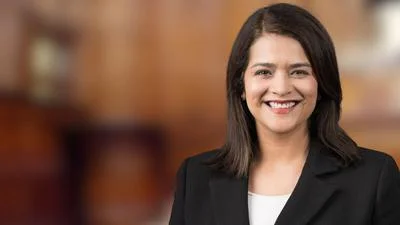Chicago Police Department
Chicago Police Department
Rank-and-file members of the Chicago Police are on the verge of having the final resolution of their more serious disciplinary cases moved out from under two civilian oversight boards - both of which the police union, FOP Lodge 7, have accused of harboring anti-police bias - and under the authority of an independent arbitrator where police believe they will receive fairer treatment.
Late last week, independent arbitrator Edwin Benn approved the disciplinary changes as part of police contract negotiations with the city that have been languishing since 2017, when the last contract ended. The change holds for police grievances covering disciplinary suspensions that are longer than a year, and for firings. Currently, the Civilian Office of Police Accountability (COPA) investigates police actions that might warrant discipline, and makes recommendations to the Chicago Police Board, which has the final say on what actions are taken.
Former FOP Second Vice President Martin Preib, who spearheaded the move to bring in an independent arbitrator for more serious disciplinary cases, said that COPA and the Police Board have in too many instances employed leaks to the media to come down hard on police officers for minor infractions. They then follow-up with the excessive punishments, he said.
“Of all the things I worked on at the FOP, I am most proud of winning this right of arbitration for the members,” Preib told Chicago City Wire. “It was a long and difficult battle. Hopefully, this will go a long way in undermining the too-cozy relationship between the city's oversight agencies and the media in Chicago.”
Reacting to the ruling, FOP President John Catanzara said that too often the boards “have proven themselves extremely biased and one-sided.”
“We have example after example where COPA has excessively recommended discipline beyond anything they have done prior,” Catanzara said in a Friday YouTube video. “And, when it goes to arbitration, it almost always gets reduced.”
In one recent case, the head of COPA recommended the dismissal of a police officer, Patrick Bunyon, who fired at two suspects after he and his partner were shot at in the Far West Side in 2018. The recommendation was condemned by law enforcement on social media; no one was hurt in the incident, and a suspect tripped during a foot chase and a gun was found nearby.
In an earlier case, the Police Board voted in 2019 to fire Officer Robert Rialmo over a 2015 shooting incident even though the Cook County State’s Attorney’ Office concluded that Rialmo operated within the boundaries of State of Illinois police conduct.
In his granting the change in disciplinary action, Benn, citing Section 8 of the Illinois Public Labor Relations Act, said that the city “will need to show cause why the Lodge’s offer should not be adopted.”
Section 8, covering grievance procedures, states: “The collective bargaining agreement negotiated between the employer and the exclusive representative shall contain a grievance resolution procedure which shall apply to all employees in the bargaining unit and shall provide for final and binding arbitration of disputes concerning the administration or interpretation of the agreement unless mutually agreed otherwise.”





 Alerts Sign-up
Alerts Sign-up